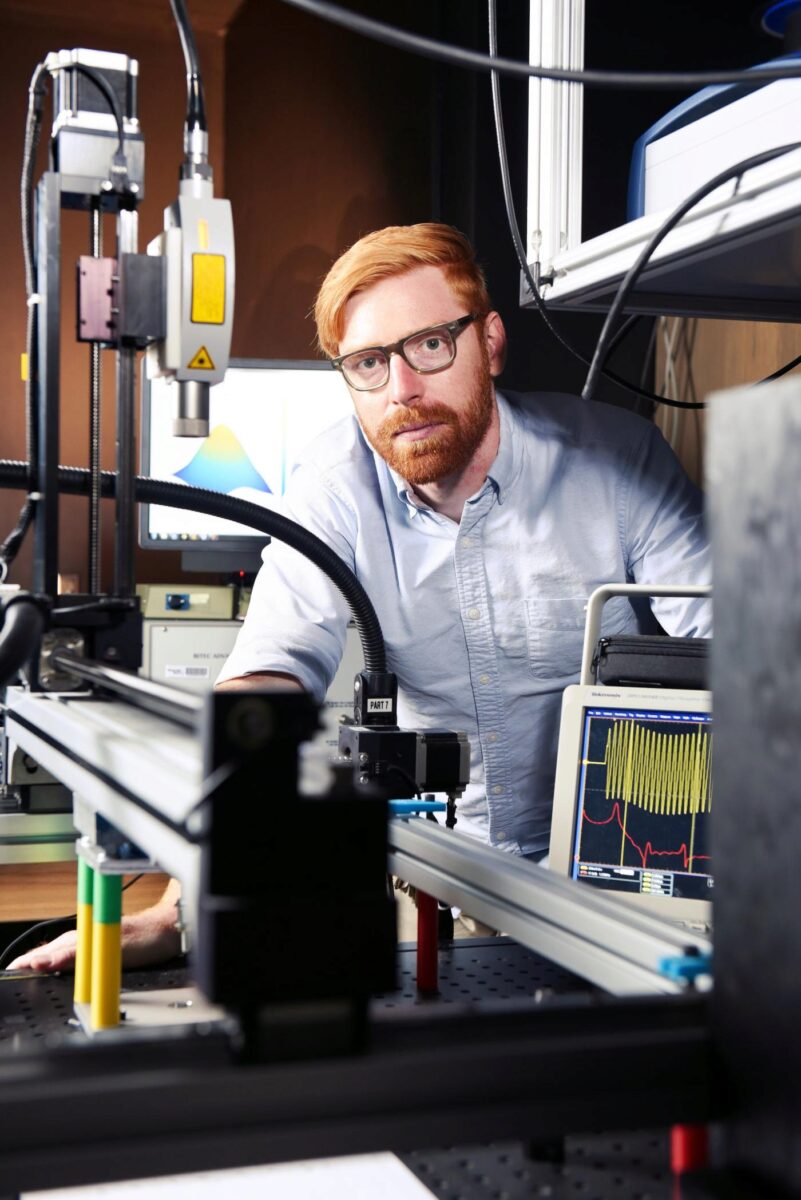
I went to UC Berkeley for my undergraduate degree, and thankfully it turns out that I just love mechanical engineering. I love the whole process, but, true to my roots, I love creating things with my hands the most. My first mechanical engineering degree really solidified that for me.
After spending a year working at Garmin on their aviation technologies, I decided to become a graduate student, and came here, mostly because Georgia Tech has amazing industry connections and the sheer number of facilities is impressive. I was astounded not only by these machining and research resources, but also the human resources on campus. If you want to use a laser interferometer, you know that you can go to mechanical engineering and find one. If you need help with code, you can easily find a person in that field who will be willing to help you out. The minds here are incredible, and everyone is willing to be a resource in order to create more engineering advances.
I knew I had fallen in love with this place when I got to go play in the Invention Studio, which is essentially a student-run machine shop that has access to traditional machining tools, but also laser cutters, 3D printers, water jets and other awesome tools. It's that intersection of really hardcore engineering technology with whatever your creativity can come up with. I've done fun art projects for myself in there, and I have created things that will help my team and I do cutting-edge research.
During my time here, my research was in nonlinear acoustics, dynamic systems and vibratory systems. As opposed to destructively evaluating things, in the Non-Destructive Evaluation Laboratory we want to be able to look inside of an engineering component or a structure without having to damage it in order to get relevant information. So if something is cracked or fatigued and you can see the damage, it's already too late. It's already failed in some way.
Using non-destructive evaluation, we catch damage before it occurs. We can evaluate where a material is in its total engineering life and make informed decisions about what to do with those components. Real-world applications of this type of engineering are boundless. Think about beams on bridges or containers used in nuclear power plants or airplane wings. Those are structures that you don’t want breaking. The research we have done attempts to prevent potentially dangerous failures from happening.
After I earned my masters, I had to make a choice: Did I want to keep going? One of the things that is amazing about Georgia Tech is the amount of exposure you get to all sorts of different fields in academia, and I found out very quickly that one of my favorite things to do was teach. I had an amazing mentor who put me in as many teaching positions as possible, and I decided that if I wanted to teach at the collegiate level, I had to get my Ph.D.
With each degree, I discovered a little more about myself and what I want to do with my life. After eight years of hard but very exciting work at Georgia Tech, I finally completed what I set out to do. I recently defended my thesis, and it feels amazing to have that “Dr.” in front of my name. I am delighted to begin teaching in the fall, because this is why I came here. It's why I got my Ph.D.
- David Torello
